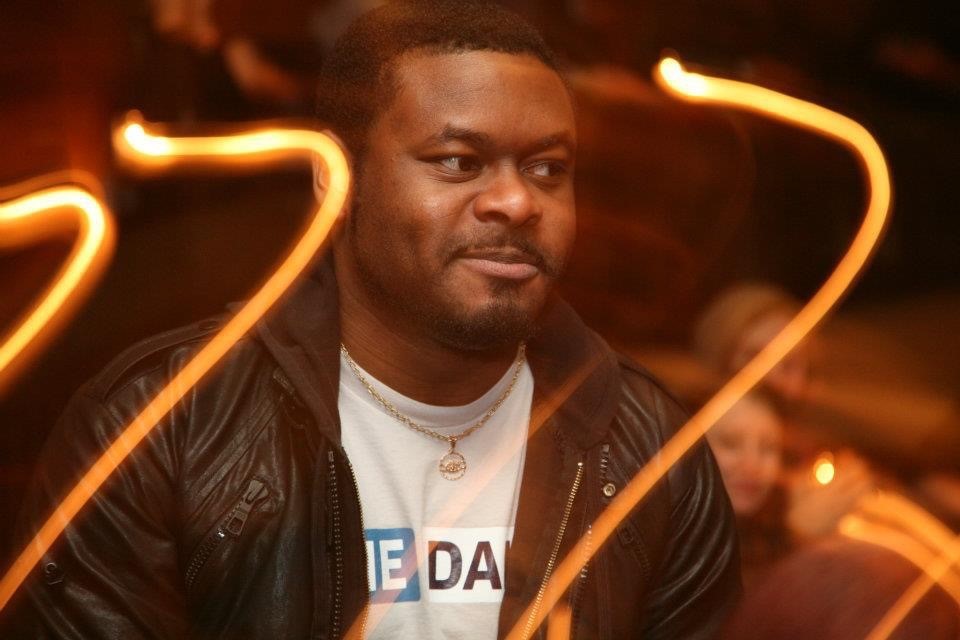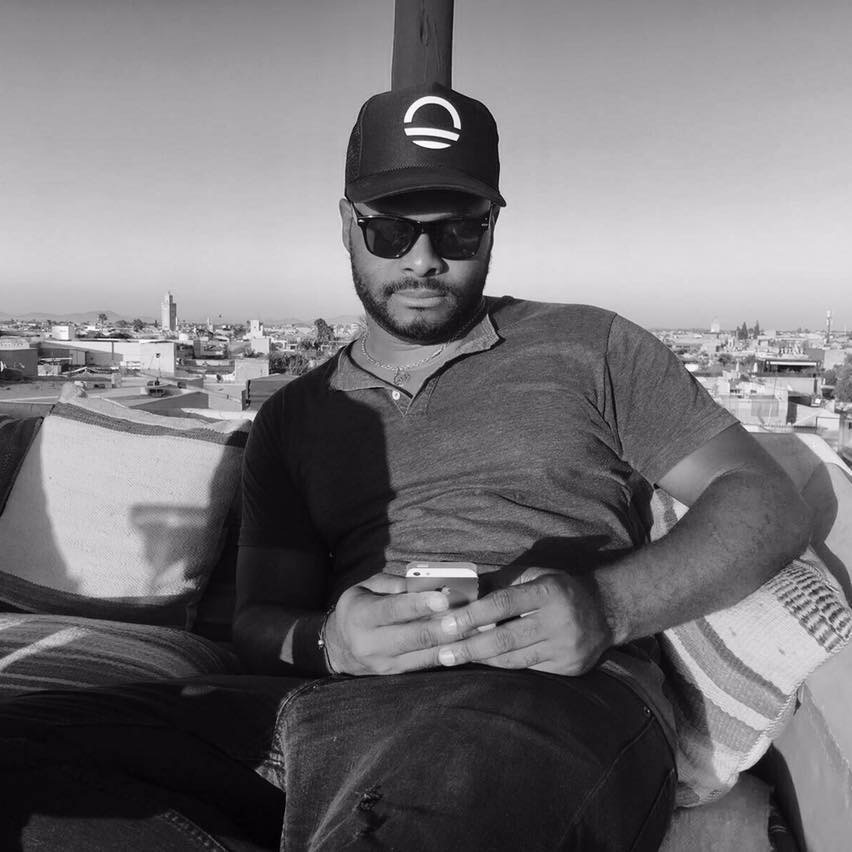Within Our Borders – Meet Web Developer Kenroy George Co-founder of LUHU
by Lou-Ann Jordan Mar 7, 2022

In the early 90s, a single piece of technology was developed and launched that, 24 years later, has led to millions. Nokia’s 1997 video game, Snake, is touted as the first mobile app. However, it’s known that the system was birthed from personal digital assistants (PDAs).
Today, mobile apps are as common as well, cellular phones. We access and download software for a miscellany of uses. The truth is apps have simplified our lives. Over the years, our reliance on them has increased as they are handy for business, travel, entertainment, health, and so much more. With users accessing more than 10 apps per day, hotel accommodations are booked, dinner reservations made, account balances checked, bills paid, and of course, shopping done. They are an essential part of our lives.
Our dependence on mobile apps is global. Whichever part of the world we may reside, one thing is for sure, we all have several apps downloaded to our smartphones. This propensity for mobile apps is certainly true of those in the Caribbean. Like our global neighbours, we have several on which we’ve come to rely. Well, what if we told you it’s time to add one more.
Created by a duo from our shores, LUHU (Let Us Help U) is designed ‘by us for us’. Boasting several notable features, one of the primary functions of the software is that it brings together buyers and sellers from around the region. Founded by Trinidadian Zwede Hewitt and Grenadian Kenroy George, the app recently received international attention and funding.
Yello had a chance to chat with co-founder and developer Kenroy George about the start-up, a revolutionary venture within our region. Read on as he discusses its beginning, progression and receiving funding from Silicon Valley.
Where in Grenada are you from?
I’m from Mamma Cannes, St. Andrews, so 100% country boy. I went to primary school at what was Crouchu R.C. before leaving for the US at 10.
How long have you lived abroad, generally, and Morocco to be exact?
I’ve lived abroad collectively for 20 years, moved back to Grenada in 2016 for three years, and bounced around Eastern Europe for six months before settling in Morocco at the start of the pandemic in March 2020. I’d travelled to Morocco twice a year since 2015 to help my best friend run a house and techno festival in Marrakech called the Oasis Festival every September.
What prompted your move to Morocco?
There are many opportunities on the African continent for technology, and the African Continental Free Trade Agreement came into effect in 2020. It opens the continent for the movement of people and goods.
Since many of my friends live here, Morocco offers me a great base to start from, so a network is very helpful. It is known as one of the gateways to Africa because of its proximity to Europe. Also, it serves as an international trade centre. It is North Africa’s only monarchy but offers an interestingly stable and relatively inclusive economy.
What sparked your initial interest in app development?
When I started dabbling in web development around 12, I realised that you could have a small project that reaches many people. Creating one app that scales to millions of users was something I saw first-hand while working at start-ups early on in New York. That inspired me to think of how it could be applied to improve particular situations in the Caribbean. We are a group of small nations, but I’m optimistic that with some tailored software, we can make the lives of many of our inhabitants immensely better to complement political will.
You’re a Grenadian, based in Morocco. Zwede Hewitt, your co-founder, is Trinidadian. How did that relationship originate?
That’s right. We were introduced by a mutual friend who’s done some work with local entrepreneurs and understood interesting projects happening across the region. She mentioned a couple of times that I should really meet Zwede, so we eventually connected around January 2020 and shared what we were both working on. The idea he had was interesting when paired with their marketing strategy, so it made my decision to join easier because, without that piece, it can be challenging to move the needle in the region.
Based in Morocco, what impact, if any, does that have on your work with LUHU?
Morocco and the Caribbean share a few things in common regarding the people, low use of technology, and their dependence on cash. The difference is that Morocco alone has about the same amount of people as the entire Caribbean. A lot more experimentation is possible in a larger market, and they are slightly more forgiving.
Morocco is also making some very focused pushes to increase the level of entrepreneurship and use of technology, which helps us immensely by paving the way for partnerships with local organisations and funding opportunities.

Why was social networking and e-commerce selected as the particular focus of this project?
We are essentially trying to mimic what we do every day in our daily lives but digitally. We are all part of communities and need to buy certain things to survive. We want to improve the experience around these moments. However, we want it tailored to our context while finding ways to improve the process around the habits of the individual.
How was LUHU initiated, and can you share about its progression?
The initial idea behind LUHU was to build out multiple verticals from the start. Still, we decided to simplify it and release an MVP to gauge interest and figure out which sections to prioritise. This decision showed us that products and services were the most popular, and we are in the process of releasing an updated version to reflect this along with the other feedback we received from users.
What is your vision for LUHU, and is it developing in the way you’ve imagined?
My vision for LUHU is to be the go-to app in the Caribbean. We have a Community section in the works where we look to “make the invisible visible” by providing information relevant to each user based on their location. For example, imagine getting updates from neighbours and government agencies on what is happening around your town. We have a few more awesome ideas we’d like to try, but things are progressing nicely at the moment. Of course, there have been some hiccups along the way, but that is more than expected with start-ups.
As co-founder, what specific feature are you most excited about having users experience as they interact with the platform?
Payments locally and eventually across the region is one thing that I am very passionate about. The possibility of making digital payments and sending money to friends quickly while within a marketplace can fuel economic growth and contribute to getting the single market economy rolling if we get this right.
What has been one of the biggest highlights since the app’s creation?
That would definitely have to be getting a Silicon Valley venture capital firm to take a chance on a Caribbean start-up. We plan to utilise this support to expand to the African continent in the coming months/years as we grow.
What is one significant development with the app that users can anticipate in the future?
I’ve mentioned some already, but we are looking to experiment with voice chat similar to Twitter Spaces or Clubhouse. We see that being an excellent use of the technology in the region.
What upcoming projects are you currently involved in to which your followers can look forward?
I’m working on something in the finance space around digital identity and embedded finance inspired by problems we encountered working on previous start-ups and LUHU. Look out for more at https://www.cari.finance.
There is also the Oasis Festival in Marrakech, Morocco. The festival returns in 2022 after two years due to COVID. If you’re in that part of the world, make sure to come say hello!
We’re thrilled about LUHU and anticipate it will progress spectacularly. We’ll be looking on, and if you want to keep updated on Kenroy’s exploits, follow him on Twitter and Instagram @kengeo.
There is much going on within our borders, and we’re excited about discovering and featuring them. Be on the lookout for our next issue of Within our Borders, and if you know someone who’s making waves, be sure to drop us a message on Facebook or IG.
Sources: Digital Trends and The Guardian.








